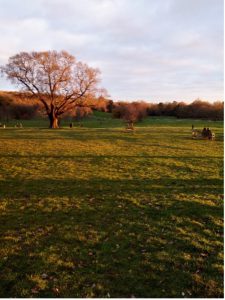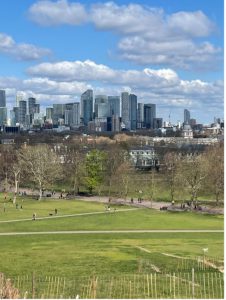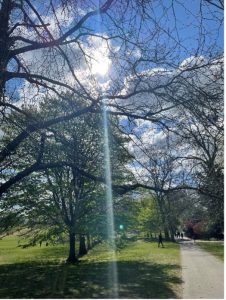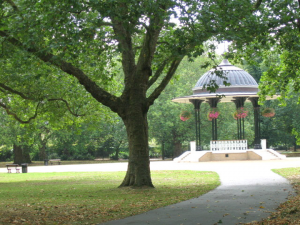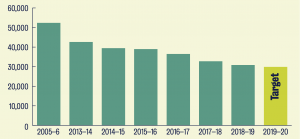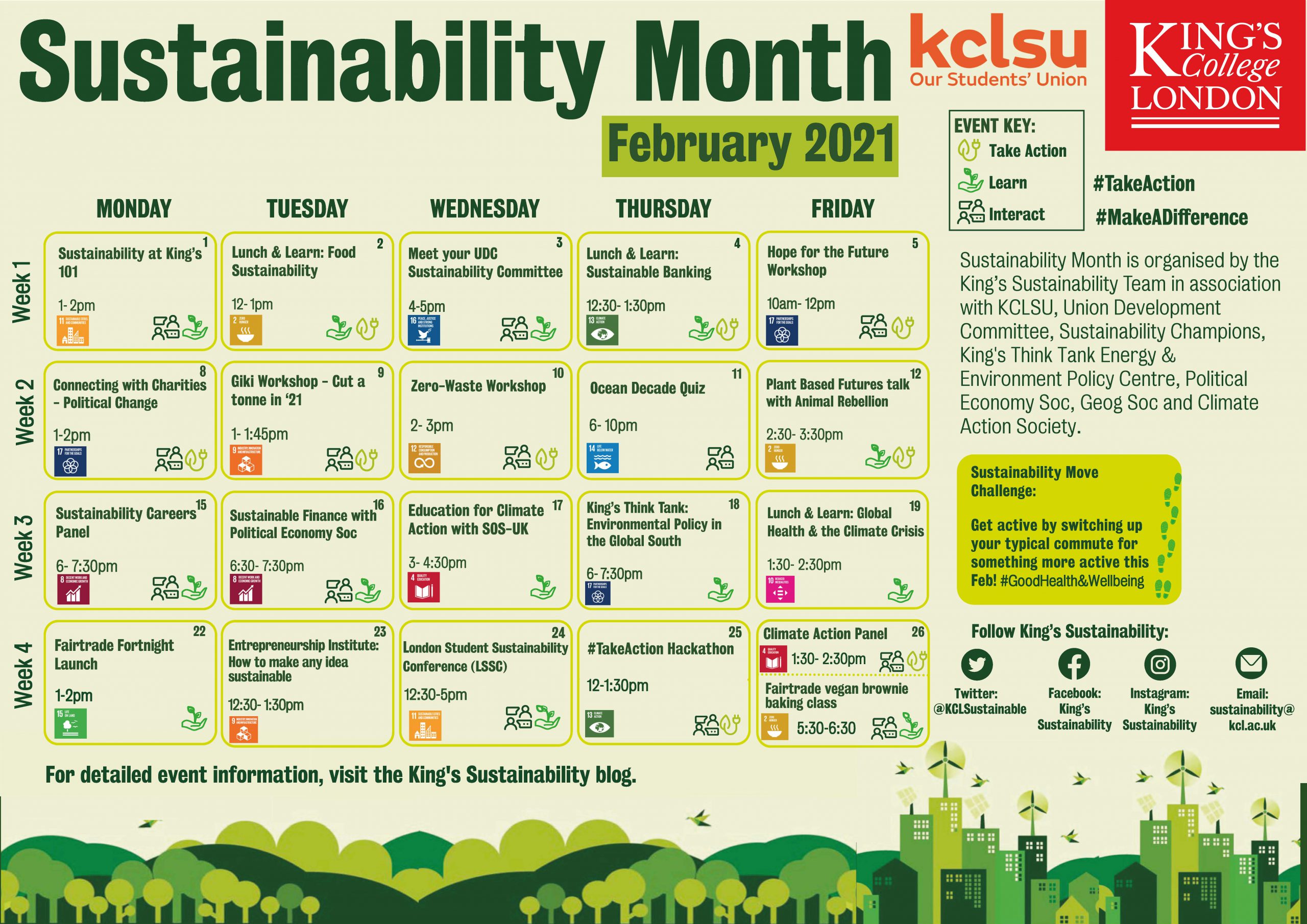Tell us a bit about yourself and your background.
 I’m Abigail, and I have just finished my BSc in Global Health and Social Medicine.
I’m Abigail, and I have just finished my BSc in Global Health and Social Medicine.
My journey here was a bit unexpected. I originally wanted to study Medicine, and Global Health was my backup choice. Not getting into Medicine was a huge disappointment, but I realised pretty early that I was meant to be in this degree programme. I really enjoyed learning about global health and social challenges, and more generally, I was excited just thinking about the possibility of learning something new.
My journey to more practical engagement with social issues started when I joined the Civic Leadership Academy (CLA) in my second year. Before that, I had read a lot about historical issues and social inequality, but I always felt like there was nothing I could do. These problems were simply too significant for any of us to solve – it was quite a depressing view of the world! But through CLA, I heard about community organising and all the practical ways people are bringing about change in their communities. This was a pretty profound shift for me – to see that you don’t have to be passive about things. So I joined Citizens UK and founded King’s 4 Change, and my time at King’s became pretty much all about community organising.
What does sustainability mean to you?
My thinking around sustainability definitely didn’t start with the environment or climate change. Climate change was actually relatively low on the list of things I cared about because there are so many other pressing issues.
Initially, I was drawn to sustainability in the context of development, specifically the progress of lower to middle-income countries. I am interested in improving the sustainability of their institutions and services and disrupting cycles of dependency on foreign aid. My dream is for these places to have more sustainable institutions and be able to stand on their own feet and show the world that, in fact, they can provide for themselves.
This links to why I love organising. In organising, we talk a lot about agency and power – feeling that you can bring about change and act for yourself rather than depend on other people to do things for you. This is what I first think of when I think about sustainability.
Could you tell us more about King’s 4 Change?
We’re now an official society at King’s! Our aim is to train students in community organising methods and act as a bridge between them and the wider Lambeth and London Citizens alliances. We want to give students the tools to get involved in community organising on a larger scale and make a change at King’s.
One of our campaigns was called Just Transition. In the first stage, we did a lot of listening. We wanted to hear about people’s experiences of climate change and the main problems impacting their lives. When you hear about global warming, it can seem quite abstract, especially in London, where we’re not experiencing floods or extreme weather. But it is impacting us in various ways. For example, people living in poorly insulated homes waste a lot of energy, which is obviously bad for the environment, but they also spend more money on energy bills. Through the work that I’ve done around climate change, I’ve realised that the solutions and options to become more sustainable are often catered to people who are maybe quite well off. So, a big part of our Just Transition Campaign was thinking about how we can make climate action more inclusive.
The campaign we’re currently running is called Fair Energy. The aim is to combat both climate injustice and economic injustice by encouraging people to switch to cheaper, fairer and more environmentally-friendly energy providers. This is what really brought me into the environmental side of sustainability – realising that many of these issues aren’t just the big sensational ones we always hear about in the news but are actually really close to home.
We’re now working on a mental health campaign with the aim of understanding the impact of COVID-19 on students’ mental health and improving services at King’s, so stay tuned for more on that.
During your time in community organising, what has been your greatest learning?
I have learned about the power of relationships. I used to think of relationships solely in the context of my family and friends. But you can have relationships that are meaningful, effective and useful that go beyond your circle of friends. Through organising, you get to meet so many people from so many different backgrounds and find common interests with people you never expected. For example, the life of an older white, middle-class person feels so far from my lived experience. By just talking to them and getting to know them, you realise that, in fact, we do care about the same thing and we can work together. This is something I’m going to take forward because it shows you should never assume that you will have nothing in common just by looking at someone. You just have to take that first step and talk to them.
Where are you hoping to go next?
As I mentioned, I’m really interested in development. I have an offer to do a masters in Development at LSE but have deferred it for a year. I would like to pursue development as a career, and from what I’ve learned, it is the kind of career for which you can gain experience in lots of different places. So I’m pretty open – maybe I’ll work in government or for a charity, in policy, research or consulting. Nothing I’m doing now was in my original plan – plans change, but you always end up in a good place! Development is what I’m most passionate about, so hopefully, I’ll end up there.
What gives you hope for the future?
In the same way that I fell in love with organising, when we do teaching or workshops, people are like, “Wow, this has been so great, this is the kind of thing I’ve always wanted to do”. Knowing that there are students and staff at King’s who have really enjoyed learning about organising and will take King’s 4 Change forward when I leave King’s gives me hope. As long as people want to organize and want to deal with the issues that affect their communities and not admit defeat in the face of these substantial problems, then hope is not lost.
Can you recommend a resource for people who would like to learn more?
I recently read Up from Slavery by Booker T. Washington. Washington was born into slavery in America, but emancipation happened when he was quite young, and he made it his life’s work to educate and bring up the black race in America. I found the book hugely inspiring! These days, the political divide can be full of friction and quite tense, and people aren’t very willing to listen to the other side or think through their ideas. However, I found his perspective on race relations between black and white Southerners very harmonious. He really considered the point of view, needs and thoughts of white Southern Americans. I found that really inspiring – for someone born into slavery to be so forgiving and so patient – and it very much applies to our current situation and reaffirms the importance of organising and listening.
Thank you, Abigail! The ‘Sustainability Stories’ series seeks to highlight the work and passion of individuals from across the King’s community. If you would like to get involved, get in touch with us.


 .
. 